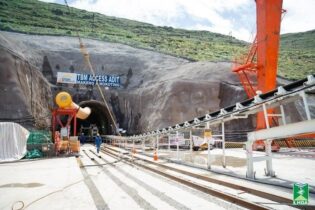
Can a ‘green’ product be manufactured from facilities that don’t implement clean production strategies?
‘’Our ReEntry recycling process is a technological breakthrough for the flooring industry. Not only does Interface take back any old carpet at the end of its life, but we even accept carpet from other manufacturers. Using specially developed technology, we convert old carpet to new carpet and other products by reusing the vinyl and nylon components,” Boogaard said.
Additionally, Interface’s Net-Works initiative enables impoverished local residents in various parts of the world to collect discarded fishing nets – which wreak havoc with the marine ecosystem – and sell the nets back into the global supply chain. “This not only provides an additional income for the local communities but also gives those destructive, broken nets a second life as new, durable carpet tiles. Net-Works is proof that when business, conservation, and communities innovate together, we can create positive, sustainable change.” Boogaard added that Ray Anderson, the founder of Interface, believed that business should not exist merely to make a profit but should also strive for a higher, nobler purpose than that. “Ray was passionate about reducing the carpet industry’s dependency on oil and in 1994 launched Interface’s Mission Zero initiative, which has set 2020 as the target date for Interface to have eliminated all negative impacts on the environment. Increased efficiency, design innovation and revolutionary recycling efforts – which now also include deriving raw materials from vehicles’ old or broken windshields – will in just four years’ time help us meet what sceptics originally regarded as an unrealistic, outrageous target,” he told the conference delegates. Not just about recycling In an interview after the GBCSA conference, Boogaard said he was concerned that an increasing number of companies saw the quest for a circular economy merely in terms of providing a recycling service to customers, and an opportunity to produce slick brochures and case studies to illustrate environmental successes. There was also the alarming tendency to develop a ‘green product’ without doing the hard work to internally eliminate any negative impact on the environment during the manufacturing process. ‘’I don’t believe that anybody can make a green product in a brown factory. It’s just not possible,” he said. *Interface products are exclusive distributed in southern Africa by KBAC Flooring.





